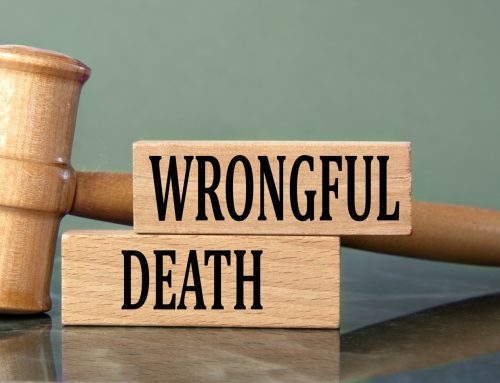Mediation serves as a crucial milestone in the journey of a personal injury case, offering an opportunity for parties to resolve disputes outside of court with the assistance of a neutral mediator. As a personal injury client, understanding the intricacies of the mediation process is essential for effectively advocating for your rights and achieving a favorable outcome. In this comprehensive guide, we’ll break down the mediation process, providing invaluable insights and practical tips to help you navigate this critical phase with confidence and clarity.
Mediation is a voluntary and confidential process where parties involved in a dispute work together with a trained mediator to find mutually acceptable solutions. Unlike litigation, which can be adversarial and time-consuming, mediation offers a collaborative and streamlined approach to resolving conflicts. In personal injury cases, mediation serves as an alternative to trial, allowing parties to negotiate settlement terms and avoid the uncertainty and expense of prolonged litigation.
The Mediation Process:
Before mediation begins, it’s essential to prepare thoroughly by reviewing case details, gathering relevant documentation, and setting realistic goals and expectations. During the mediation session, each party will have an opportunity to present their case through opening statements, followed by negotiation and discussion. The mediator will help guide the conversation, facilitate communication between parties, and work towards a resolution. If an agreement is reached, the terms will be documented and finalized, bringing the mediation process to a close.
Mediation offers several advantages for personal injury clients, including confidentiality and privacy, cost-effectiveness, control over the outcome, preservation of relationships, and expedited resolution. By engaging in mediation, clients can avoid the uncertainty and expense of trial while maintaining greater control over the outcome of their case.
What to Expect During Mediation:
Mediation sessions offer a unique opportunity for parties to engage in constructive dialogue and negotiation in a neutral and controlled environment. Here’s a closer look at what you can expect during the mediation process:
- Neutral Setting:
- Mediation sessions typically occur in a neutral setting, such as a conference room in a law office, courthouse, or mediator’s office. The environment is designed to promote open communication and collaboration.
- Duration of Sessions:
- The duration of mediation sessions can vary widely, depending on the complexity of the case, the number of issues to be addressed, and the parties’ willingness to negotiate.
- Sessions may last anywhere from a few hours to several days, with breaks provided as needed to allow parties to regroup and refocus.
- Mediator’s Role and Responsibilities:
- The mediator serves as a neutral facilitator tasked with guiding the mediation process and fostering constructive dialogue between parties.
- Throughout the session, the mediator will encourage parties to express their perspectives, listen actively to each other, and explore potential areas of agreement.
- The mediator may employ various techniques to move the negotiation forward, such as reframing issues, brainstorming solutions, and leading direct communication between parties.
- Encouraging Open Communication:
- One of the primary goals of mediation is to encourage open and honest communication between parties.
- Parties are encouraged to speak freely, express their concerns, and listen actively to each other’s viewpoints.
- The mediator may employ active listening techniques to ensure that each party feels heard and understood, fostering an atmosphere of mutual respect and cooperation.
- Assistance in Reaching Agreement:
- As the session progresses, the mediator will work with parties to identify areas of agreement and explore potential solutions to outstanding issues.
- The mediator may help parties brainstorm creative solutions, clarify misunderstandings, and overcome impasses in negotiation.
- If parties are unable to reach a resolution on all issues during the initial session, the mediator may schedule follow-up sessions or recommend alternative dispute resolution methods.
Preparation Tips for Personal Injury Clients:
Preparing for mediation is a crucial step in maximizing the effectiveness of the process and increasing the likelihood of a favorable outcome. Here are some expert strategies and specific tips to help personal injury clients prepare for mediation:
- Review Case Details:
- Begin by thoroughly reviewing all aspects of the personal injury case, including the facts, evidence, and legal arguments.
- Identify key issues that are central to the case and prioritize them based on their significance and potential impact on the outcome.
- Gather Supporting Documentation:
- Collect and organize all relevant documentation related to the case, including medical records, accident reports, witness statements, and correspondence with insurance companies.
- Ensure that the documentation is complete, accurate, and up-to-date, as it will serve as essential evidence during the mediation process.
- Set Realistic Goals and Expectations:
- Take time to reflect on the desired outcomes for mediation and set realistic goals based on the strengths and weaknesses of the case.
- Be prepared to compromise and consider alternative solutions to reach a mutually acceptable agreement with the opposing party.
- Practice Effective Communication:
- Practice articulating the position concisely and persuasively, focusing on key points that support your case.
- Anticipate potential questions or challenges from the opposing party and prepare thoughtful responses in advance.
- Anticipate Potential Challenges:
- Identify potential challenges or obstacles that may arise during mediation, such as emotional triggers, difficult personalities, or impasses in negotiation.
- Develop strategies for addressing these challenges proactively, such as maintaining composure, staying focused on the facts, and remaining open to compromise.
- Consult with Your Attorney at Reid Law Group:
- Collaborate closely with your attorney throughout the preparation process, seeking their guidance and expertise to ensure that you are fully prepared for mediation.
- Discuss your goals, concerns, and priorities with your attorney, and trust their judgment in navigating the complexities of the mediation process.
Strategies for Success in Mediation:
Success in mediation hinges on effective communication, collaboration, and flexibility. Active listening, empathy, and a willingness to compromise are essential qualities to cultivate during the mediation process. By leveraging legal counsel and remaining open-minded to creative solutions, clients can increase their chances of reaching a favorable outcome.
Overcoming Challenges in Mediation:
While mediation offers many benefits, it can also present challenges such as emotional factors, power imbalances, and impasse or deadlock. By addressing these challenges head-on, seeking alternative dispute resolution methods, and maintaining a focus on the ultimate goal of resolution, clients can navigate mediation with resilience and determination.
Post-Mediation Procedures:
After mediation, it’s essential to review and finalize any settlement agreements reached during the session. Ensuring compliance with the terms of the agreement and closing the case or proceeding to litigation if necessary are crucial steps in the post-mediation process.
At Reid Law Group, we specialize in personal injury cases and offer expert guidance and representation to clients throughout the whole case, including when it is time to mediate. Our team provides personalized legal advice, negotiation skills, and advocacy for your interests, ensuring that your rights are protected and your goals are pursued diligently.
Mediation is a valuable tool for resolving personal injury disputes efficiently and effectively. By understanding the mediation process, preparing thoroughly, and engaging in open communication, clients can maximize their chances of achieving a favorable outcome. At Reid Law Group, we’re here to support you every step of the way, providing the expertise and guidance you need to navigate mediation with confidence and clarity. If you need an attorney for your personal injury case, don’t hesitate to reach out to us for a consultation. We’re here to help you achieve the justice and compensation you deserve.







